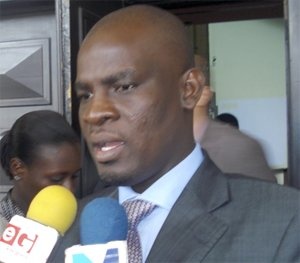Government is targeting between $3-5 billion in annual foreign direct investments (FDI) between now and 2018 to improve the macro-economy and boost growth, Haruna Iddrisu, Trade and Industry Minister, has said.
Ghana is among the top-three destinations for foreign direct investment in Africa, according to the United Nations Conference on Trade and Development (UNCTAD) which publishes an annual global investment report.
Despite significant macro-economic challenges and a new investment law that sets fresh conditions for FDI in certain sectors of the economy, foreign investors have largely kept faith with the country.
Last year, $3.9 billion worth FDI projects were registered with the Ghana Investment Promotion Centre (GIPC), and $88 million of initial capital transformed within the year.
Inaugurating a new 10-member board of the GIPC in Accra, Mr. Iddrisu tasked the centre to work aggressively toward achieving the government's FDI target.
“You will be the most attractive magnet in terms of getting foreign investments into our country. We should be looking at $3 billion to $5 billion between now and 2018 to improve the macroeconomic environment,” he said.
He also directed the board to establish within 45 days a one- stop shop for investment information, advisory services and registration. This follows recommendations from an open forum held in Accra earlier this year to discuss the GIPC law that was enacted in 2013.
Panellists at the forum - including Ishmael Yamson, a former chairman of the GIPC, and Robert Ahomka-Lindsay, a former chief executive -- criticised the law for its failure to reduce bureaucracy through creating a one-stop shop.
Mr. Iddrisu said the country's investment landscape remains favourable due to its political stability and requested the board to increase participation by locals in FDI projects, and to provide advice on incentives needed to boost domestic competitiveness.
He also charged the board with designing strategic tax incentives that will attract FDI to other regions apart from Greater Accra, which receives more than 80 percent of FDI projects.
Dr. Michael Agyekum Addo, the respected entrepreneur and boss of the Kama Group of Companies with interests in health services and commercial real-estate, is the chairman of the new board.
Other directors include Nii Lante Vanderpuye, the Deputy Trade Minister; Millison Narh, a Deputy Governor of the central bank; Mawuena Trebarh,
GIPC's chief executive; and Nana Osei Bonsu, chief executive of the Private Enterprise Federation (PEF).
Dr. Addo said the board will streamline the investment registration process and ensure that it protects the country's interests in investment negotiations.
“We hope to reduce bureaucracy and create an atmosphere of trust among business clients, as well as advocate strongly for domestic capital mobilisation and a long-term development plan.”
Among the country's top sources of FDI are the United States, Britain, China and India.
Click to view details



Business News of Friday, 6 June 2014
Source: B&FT

















